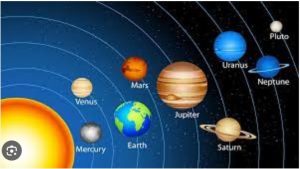 Introduction
Introduction
According to Vedic Astrology, each planet has both positive and negative influence over people, affecting different aspects of life. This idea is called Karaka. Seven Karakas are recognised by astrologers, and each one symbolises a particular facet of life. Notably, because Rahu and Ketu represent liberation or salvation, it is thought that they transcend Karakas. The planet Atmakaraka is the most important of these Karakas. The numerous Karakas are as follows:
- Atma karaka: The self is signified.
- Amatya Karaka: Mapping out one’s professional trajectory.
- Bhratu Karaka: Denoting fatherly influence and siblings.
- Matru karaka: Denoting the domains of education and motherhood.
- Putra Karaka: Children, intellect, and creativity are influenced.
- Gnati Karaka: Meditations on hardships, ailments, and spiritual development.
- Dara karaka: Signifying partnerships and marriage.
Note on Gnati Karaka
Among these Gnati Karaka is the most problematic. Avoidance of wearing a stone of Gnati Karaka is suggested. The highest degree on the planet denotes Atmakaraka. Following the descending order degree, a native can easily find his/her Gnati Karaka planet. It is the 6th from the highest degree. It can be your 5th lord or 9th lord as per the Vedic system of Astrology. Wearing such a stone should be done after consulting a knowledgeable Astrologer otherwise not. You already know that The planet with the highest longitude in a birth chart is the Atmakaraka, followed by the Sun, Moon, Mercury, Venus, Mars, Jupiter, Saturn, or Rahu. In the native’s Kundali, any one of these heavenly bodies might be the Atmakaraka Planet.
Significance of Atmakaraka
As was already said, the planet Atmakaraka is the most powerful of all the celestial bodies and has a great effect on the horoscope. The Atmakaraka planet’s house is very important since it plays a major role in determining the nature of all karmic events. This location defines the essence and karmic path of the native, predicting the soul’s progression throughout life.
An individual’s total karmas are essentially included on the Atmakaraka planet. Weaker planets’ negative effects are lessened by a strong Atmakaraka, which also gives other aspects of the chart more strength to produce favourable results. On the other hand, even the most powerful and fortunate planets may be hindered from producing their best effects by a feeble Atmakaraka.
Planet as Atmakaraka
A Benefic planet suggests less influence in this area, whereas a Natural Malefic planet, such as Rahu, indicates substantial spiritual development when it becomes the Atmakaraka (AK). For Ramkrishna Paramhansa, Rahu was the Atmakaraka. On the other hand, difficulties and misfortunes may arise due to the Atmakaraka planet’s Vimhottori Dasha, particularly if the planet is malefic. Yet, this stage can be helpful for people who have a spiritual bent. A retrograde Atmakaraka, which reflects the nature of the planet taking on the function of Atmakaraka, denotes a strong desire as the primary cause of birth. In Vedic astrology, a debilitated Atmakaraka planet denotes a soul with a darker history of past deeds, whereas an exalted Atmakaraka planet represents praiseworthy past deeds of the soul.
In addition to being strong, the Atmakaraka’s power should also be conducive to the lagna (ascendant) and lagnesha (ruler of the ascendant). Furthermore, the D60 chart’s Atmakaraka planet’s position and strength provide insights into past-life karma.
As previously stated, any planet except Ketu can assume the role of Atmakaraka, with each exerting its unique influence on the individual. Let’s explore the specific impacts when a particular planet holds the position of Atmakaraka.
- Atmakaraka, or The Sun: Instills humility while bestowing authority, social standing, and respect. To achieve balance, the native must overcome ego repression, though.
- Atmakaraka – The Moon: Shows great concern and compassion, placing a high value on relationships with family and friends. Possessiveness, though, could stand in the way of their happiness quest.
- Atmakaraka – Mars: Shows signs of rivalry, anger, and a short fuse that can occasionally turn violent. For them, friendly rivalry is essential to temper balance.
- Atmakaraka – Mercury: Has trouble reining in their voice, yet they may be strong orators and debaters. They need to communicate with wisdom and moderation.
- Atmakaraka – Jupiter: Stresses the value of having respect for mentors and spouses alike, and encourages being receptive to different viewpoints in order to prevent strained relationships.
- Atmakaraka – Venus: Has a propensity for excessive relationship indulgence and intimacy problems brought on by high sexual arousal, which can occasionally result in troubles.
- Atmakaraka – Saturn: Faces many obstacles in life, highlighting the significance of empathising with others’ suffering and steering clear of inflicting misery to anyone.
Conclusion
According to Vedic Astrology, everyone reincarnates to achieve their goals from previous lives. The path to either enslavement or release is revealed by the planet Atmakaraka (Moksha). Positive planetary effects facilitate the completion of life duties when the Atmakaraka is in a favourable alignment. On the other hand, an unfavourable alignment makes jobs more difficult and may result in poor decisions. Salvation and a reunion with the divine are the soul’s ultimate goals. Therefore, it is thought that Atmakaraka creates the road to Moksha. But its mere existence in the Kundali does not bring about release. It must be actively pursued by living a morally upright, devout, and obedient (satvik and dharmik) life.
Good explanation
Good
Very good